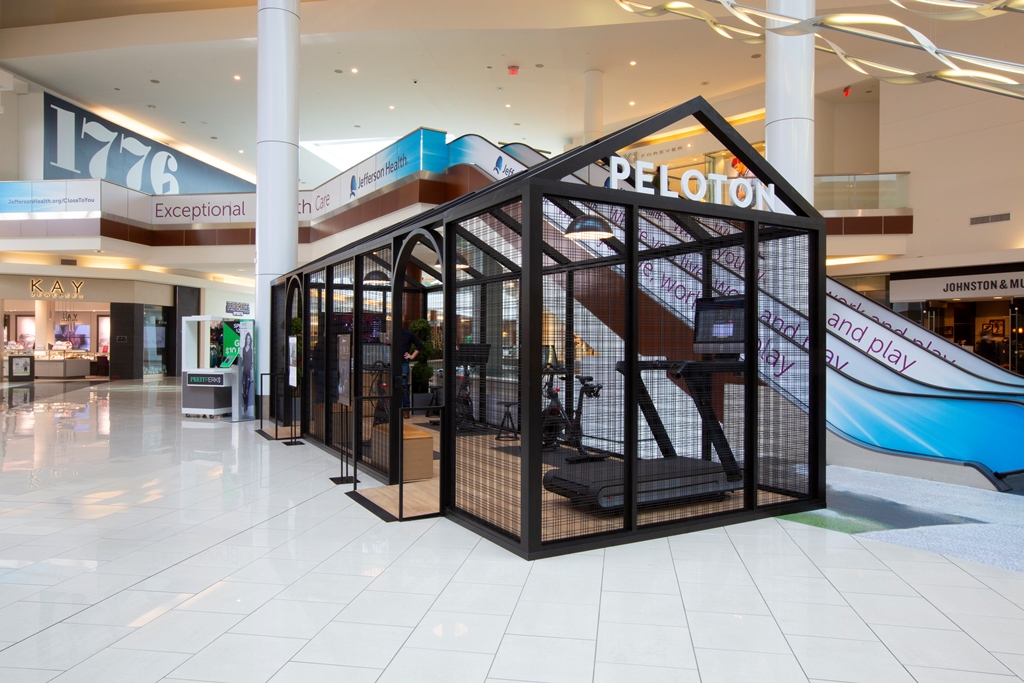This post is sponsored by PREIT.
It’s no secret that retail has undergone a major transformation in recent years – and nearly halfway into 2019, it’s showing no signs of slowing down. The historic view of the mall is no longer viable. A decade ago, heavy reliance on apparel and accessories, coupled with traditional food courts, could generate success; but that model doesn’t align with the evolving needs of today’s shoppers.
Instead, consumers are looking for more than shopping in their retail experience, and in order to stay relevant, malls need to deliver. From socializing to dining, working out to just working, the next generation mall is offering a more refreshed, modernized experience than its predecessors.
Diversity in every way
There’s no cookie-cutter template for retail anymore. Success lies in creating a diverse and dynamic roster of tenants, including different concepts and price points. Whether an open-air center or mall property, retail real estate today needs to boast an array of shopping and experiential concepts such as dining, entertainment, fitness, grocery, beauty and everything in between.
A decade ago, PREIT opened a Whole Foods at our Plymouth Meeting Mall in the Philadelphia suburbs, one of the first times a grocery store was used to anchor a property. It was a pioneering example of disrupting the mall landscape, and the diversification continues today. Half the tenancy is dedicated to dining and entertainment, including family-friendly LEGOLAND Discovery Center Philadelphia; escape-room like adventure 5 Wits; indoor cycling studio CycleBar; and several other concepts redefining what it means to be a mall in today’s market.
Beyond experiential tenants, an array of retail segments is also diversifying the shopper journey from off-price to fast-fashion retailers. Shoppers are increasingly pursuing the “thrill of the hunt” retail experience, and the industry is responding to these rapidly growing segments by opening several locations at malls across the country.
Flexible formats
Just as traditional shopping centers are transforming their tenant models, conventional store formats are in need of evolution. As brands consider their brick-and-mortar presence, they’re looking for space that meets their needs, and the answer is not always a one-size-fits-all approach. Retail real estate is leveraging pop-ups, kiosks and other formats to fill that demand, particularly for e-commerce companies expanding to physical retail.
For mall landlords, having flexibility in the length of the lease and space format is key to offering real estate that’s beneficial for owners, tenants and shoppers. Flexibility allows brands to experiment with physical space, and by interacting with customers, landlords can bring in new revenue and drive traffic, and shoppers can discover new brands.
At PREIT, we’ve recognized this need to adapt our offerings and partnered with several emerging and in-demand brands to provide short-term leases and smaller footprints, such as a 300-square-foot Peloton kiosk offering demonstrations and seasonal pop-ups for holiday retailer Balsam Hill. We’re also leveraging this model for a new program at Fashion District Philadelphia, a joint venture between PREIT and Macerich, called Uniquely Philly. This initiative will welcome several local small businesses and offer them opportunities to grow their companies and connect with larger audiences using Fashion District’s highly visible retail platform.
Looking beyond retail
For true differentiation, retail space needs to offer opportunities beyond shopping and dining. Adding density by offering residential or hotel units is a natural next step for shopping center owners, giving them the ability to enhance asset value and increase capital for mall properties. This can be particularly impactful for high performing properties located in high barrier-to-entry markets. Co-working spaces, art galleries and family destinations have also all successfully differentiated retail centers, reshaping the definition of a mall today.
For example, PREIT’s Cherry Hill Mall partnered with 1776, the largest network of incubators in the Northeast Corridor, to launch a location focused on innovation in retail. Within the walls of the mall, a collection of startups, small businesses, retail and e-commerce incubation initiatives join in a co-working space. As the shopping experience continues to evolve, the mall offers the opportunity for 1776 members to immerse themselves in a retail environment with real-time interaction with live customers, while simultaneously selling their products in 1776’s first-ever Founders’ Market, featuring artisans and makers from within the local community. Through smart partnerships and innovative thinking such as this, PREIT’s properties are shifting to lifestyle destinations and community impact centers.
Change in the retail industry isn’t slowing any time soon. Instead of fighting the headwinds, we should embrace this evolution and take every opportunity to successfully pivot in a new direction.
PREIT (NYSE:PEI) is a publicly traded real estate investment trust that owns and manages quality properties in compelling markets. PREIT’s robust portfolio of carefully curated retail and lifestyle offerings mixed with destination dining and entertainment experiences are located primarily in the densely-populated eastern U.S. with concentrations in the mid-Atlantic’s top MSAs. Since 2012, the company has driven a transformation guided by an emphasis on portfolio quality and balance sheet strength driven by disciplined capital expenditures
